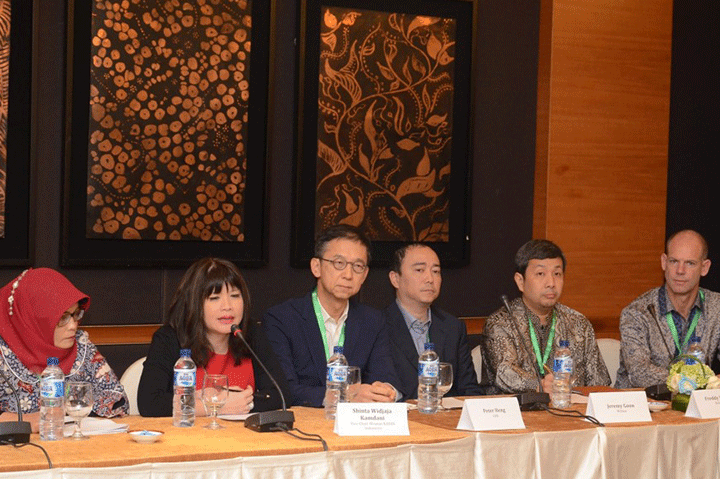Supervising the commitment and consistency of the various sustainability practices in the palm oil sector in Indonesia, Indonesia Business Council for Sustainable Development (IBCSD), supported by the Indonesian Chamber of Commerce and Industry (KADIN) in cooperation with the Embassy of the Federal Republic of Germany held a conference with the theme ‘Toward Deforestation-Free Palm Oil In Indonesia: Implementation Challenges – High Carbon Stock and High Conservation Value‘, the Kennedy, Voice & Berliner reported.
This conference was a follow up of the Climate Change Summit in New York on 23 September 2014 where four large Indonesian palm oil companies signed a pledge Indonesian Palm Oil Pledge (IPOP), commiting themselves to responsible palm oil production that is deforestation-free and respects human and community rights. The conference aims to develop a framework for the realization of the deforestation-free palm oil industry in Indonesia.
The signing of Indonesian Palm Oil Pledge (IPOP) by Asian Agri, Cargill, Golden Agri Resources and Wilmar was an example of how the palm oil industry can still generate economic benefits without ignoring environmental and natural resources conservation efforts. The event held a significant importance for Indonesia and the world given Indonesia’s position as the world’s largest palm oil producer, reached 29 million tons production in 2014, in the form of palm oil or Crude Palm Oil (CPO) and Palm Kernel Oil (PKO) which are exported to all over the world, primarily to India, Europe, China and 60 other countries.
The palm oil conference is the second opportunity for IBCSD and KADIN Indonesia to show initiatives in following up the IPOP pledge. The conference is a means of constructive dialogue for all stakeholders on the issue of sustainable palm oil production, and defines the challenges towards deforestation-free palm oil in Indonesia. Efforts in developing the sustainable and productive palm oil sector of Indonesia needs to be supported by some points discussed in this conference, including a clarification of the definition of High Carbon Stock (HCS) and High Conservation Value (HCV) agreed by all stakeholders, as well as the legal framework and policy which enables companies to concentrate production on degraded and low carbon stock land.
For the complete article, see
here. Photo courtesy of Kennedy, Voice & Berliner.
Daemeter Consulting provided technical assistance through the development of background reading material for the workshop. You can download the publication in English and Bahasa Indonesia
here.

